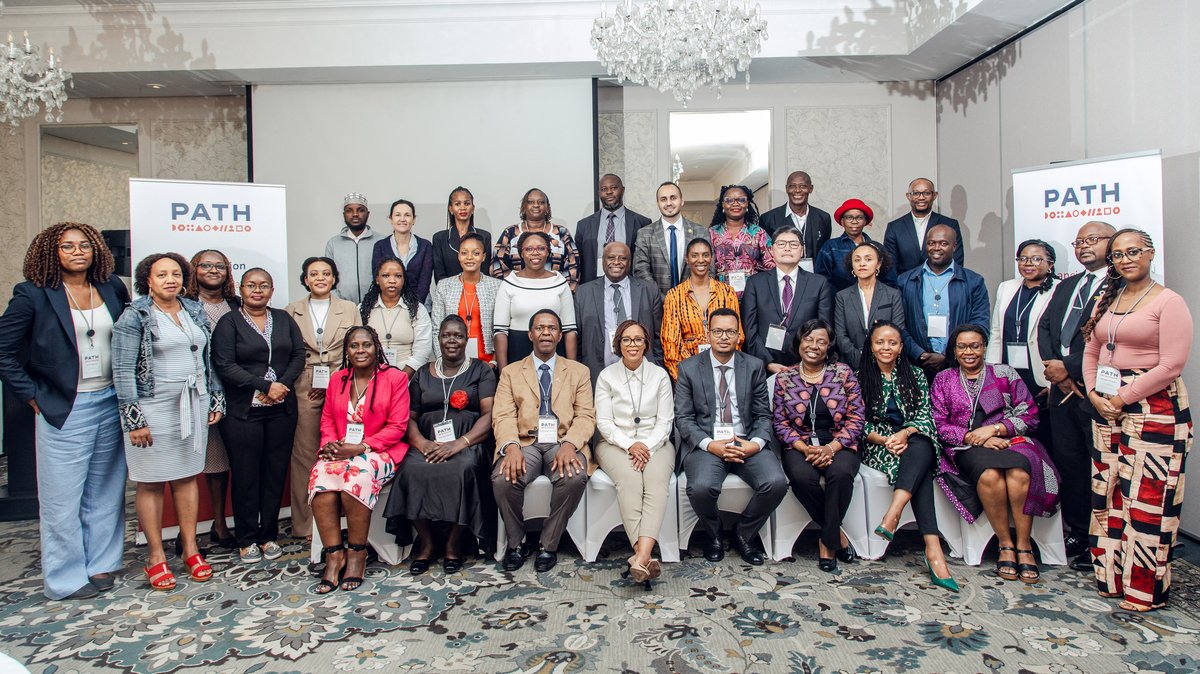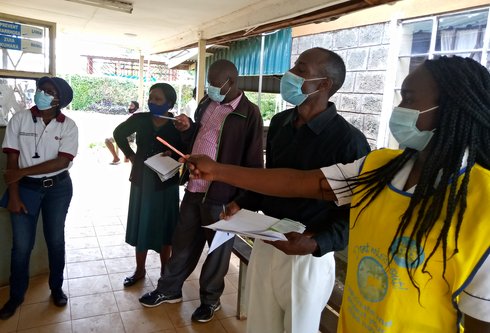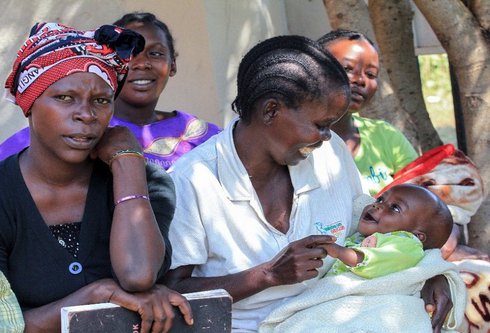Imagine facing a life-threatening situation, only to be saved by a medicine you once fought to make accessible. This is the story of Esther Nasikye, PATH’s Global MNCH and Immunization Advocacy Lead.
In 2013, Nasikye helped drive a resolution to expand access to lifesaving commodities for women and children. Its adoption at the World Health Assembly spurred policy reforms and funding across countries.
In Uganda, Nasikye’s home country, it led to the addition of misoprostol—used to stop postpartum hemorrhage—to the Essential Medicines and Health Supplies List, which determines products available in the country’s health facilities. Four years later, Nasikye, in a hospital labor ward, began hemorrhaging after giving birth. As she faded, she heard her doctor prescribe misoprostol, the very drug she had once championed. It saved her life.
“Advocacy is catalytic in translating commitments into action, in translating policies from the capitals to the clinics, where we need to see the real impact. Advocacy is important in ensuring that we have the resources that we need to have the critical supplies and commodities we need so that women, babies, and children are safe,” said Nasikye.
With only five years remaining to achieve the 2030 Sustainable Development Goals (SDGs)—amidst massive shifts in global health funding—stories like Nasikye’s are a clear reminder of the urgent need to coordinate regional action in Africa to ensure that every mother has access to the lifesaving tools Nasikye did.
In April, PATH gathered key country and regional partners in Johannesburg, South Africa, to align on advancing health progress for women and children across Africa. These included representatives from the African Union Commission and Africa Centres for Disease Control and Prevention (CDC), global partners like the Partnership for MNCH, and technical partners from the World Health Organization (WHO) African Region (AFRO), the United Nations Children’s Fund (UNICEF), and the United Nations Population Fund, along with donors and civil society representatives.

Opening ceremony speakers (L–R): Margaret Muigai Edwin (Africa CDC), Ramphelane Morewane (South Africa Department of Health), Alleluia Delphine Dusabimana (African Union Commission), and Dr. Ider Dungerdorj (UNICEF). Photo: PATH/Bright Mokome.
Sub-Saharan Africa carries the heaviest maternal and child mortality burden
Globally, significant progress was made between 2000 and 2023: maternal deaths fell by 40 percent, stillbirths by 30 percent, neonatal mortality by over 44 percent, and under-five mortality by more than 50 percent, according to UN Inter-agency Group for Child Mortality Estimation (UN IGME) statistics and a UN report on trends in maternal mortality.
However, rates remain stubbornly high in Africa, and most countries are not on track to meet the SDGs.
During the convening, Dr. Ider Dungerdorj, Senior Health Specialist for UNICEF’s Eastern and Southern Africa Region, highlighted the stark realities. Sub-Saharan Africa accounts for roughly 70 percent of global maternal deaths, with a rate of 442 deaths per 100,000 live births, compared to just 11 in Europe. The continent bears 47 percent of the global stillbirth burden and has a neonatal mortality rate of 27 per 1,000 live births—more than double the global average.
“Sub-Saharan Africa remains an epicenter of attention. These are not just statistics; they represent the lives of mothers, newborns, and children who are not with us today,” said Dr. Dungerdorj.
“Sub-Saharan Africa remains an epicenter of attention. These are not just statistics; they represent the lives of mothers, newborns, and children who are not with us today.”— Dr. Ider Dungerdorj, UNICEF's Senior Health Specialist
Africa must run faster and smarter to hasten progress
Despite these formidable challenges, health worker training is expanding, MNCH services are being strengthened and integrated into primary health care, and digital innovations are improving access. However, much more needs to be done.
“It’s good to see the decline, but it’s really not to a degree that will bring us to the target. Our task is to see how we can achieve accelerated progress, so that we can get closer to our SDG targets,” said Dr. Roseline Dansowaa Doe, WHO AFRO Medical Officer for Reproductive, Maternal, Newborn, Child and Adolescent Health.
To achieve the SDGs, the UN IGME 2023 report notes that neonatal mortality reduction must increase by more than 9 times, maternal mortality by over 16 times, under-five mortality by 6 times, and stillbirths by 8 times. These figures underscore the need to “run faster and smarter” toward known interventions.
“It’s good to see the decline, but it’s really not to a degree that will bring us to the target.”— Dr. Roseline Dansowaa Doe, WHO AFRO Medical Officer for Reproductive
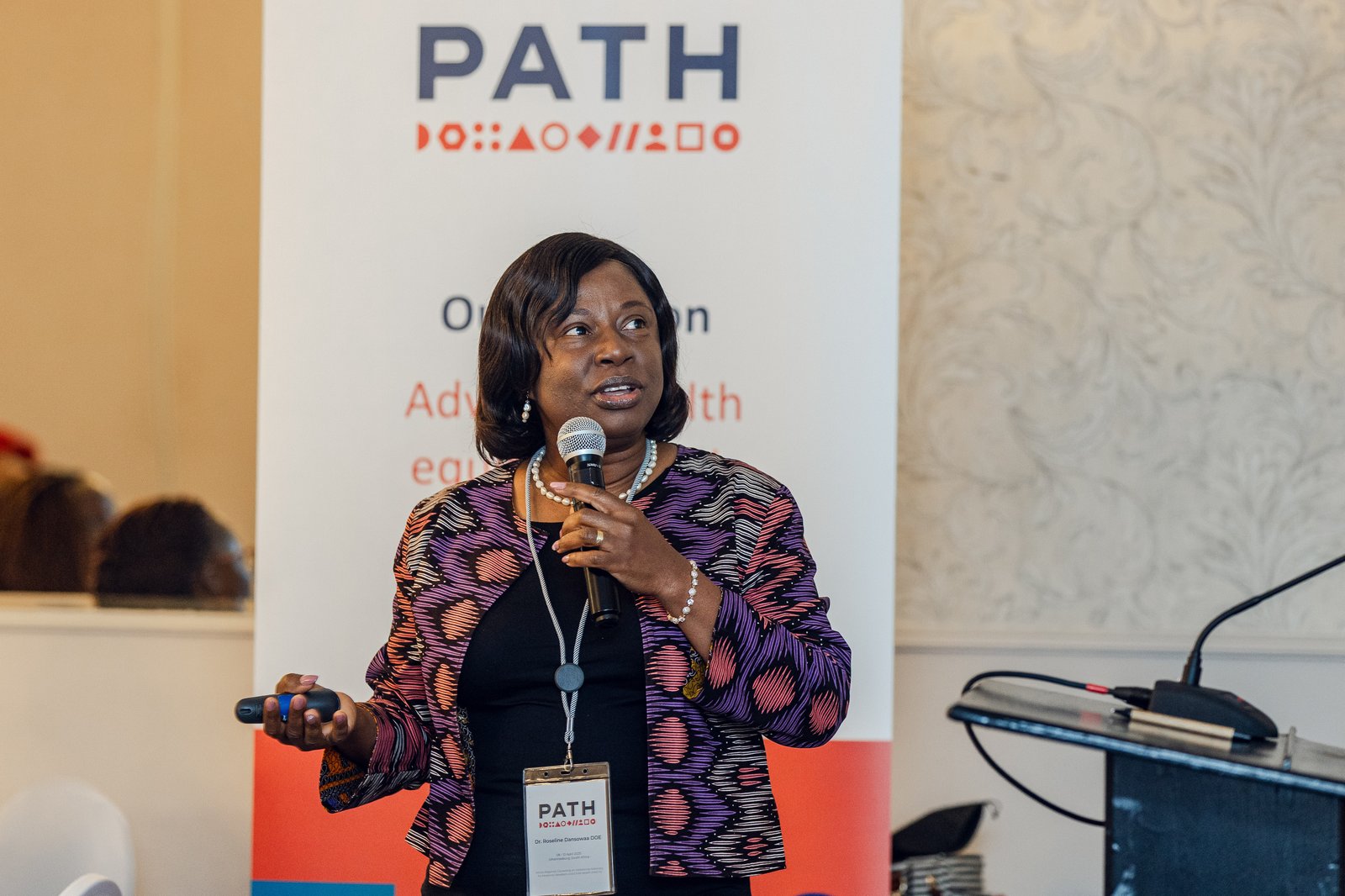
WHO AFRO medical officer Dr. Roseline Dansowaa Doe during her speech. Photo: PATH/Bright Mokome.
Political will is a game changer
Domestic financing and sustainable investment must be increased for MNCH systems. Hon. Dr. Sibongiseni Maxwell Dhlomo, Chairperson of the Portfolio Committee on Health at South Africa’s National Assembly, highlighted the role of parliaments in shaping policy and financing.
“Members of Parliament (MPs), together with other leaders, must recognize that they have the influence to direct the government budget to political and socioeconomic factors that burden societies. As MPs, let us be counted as game changers in the lives of women plus children,” said Hon. Dhlomo.
“Pregnancy is not a disease, but in Africa we have a lot of mothers dying due to pregnancy.”
He urged MPs to explicitly include funding for key priorities such as tuberculosis, HIV, MNCH, and noncommunicable diseases—with detailed line items for accountability—in health budgets.
“Pregnancy is not a disease, but in Africa we have a lot of mothers dying due to pregnancy.”— Hon. Dr. Sibongiseni Maxwell Dhlomo, South Africa’s National Assembly
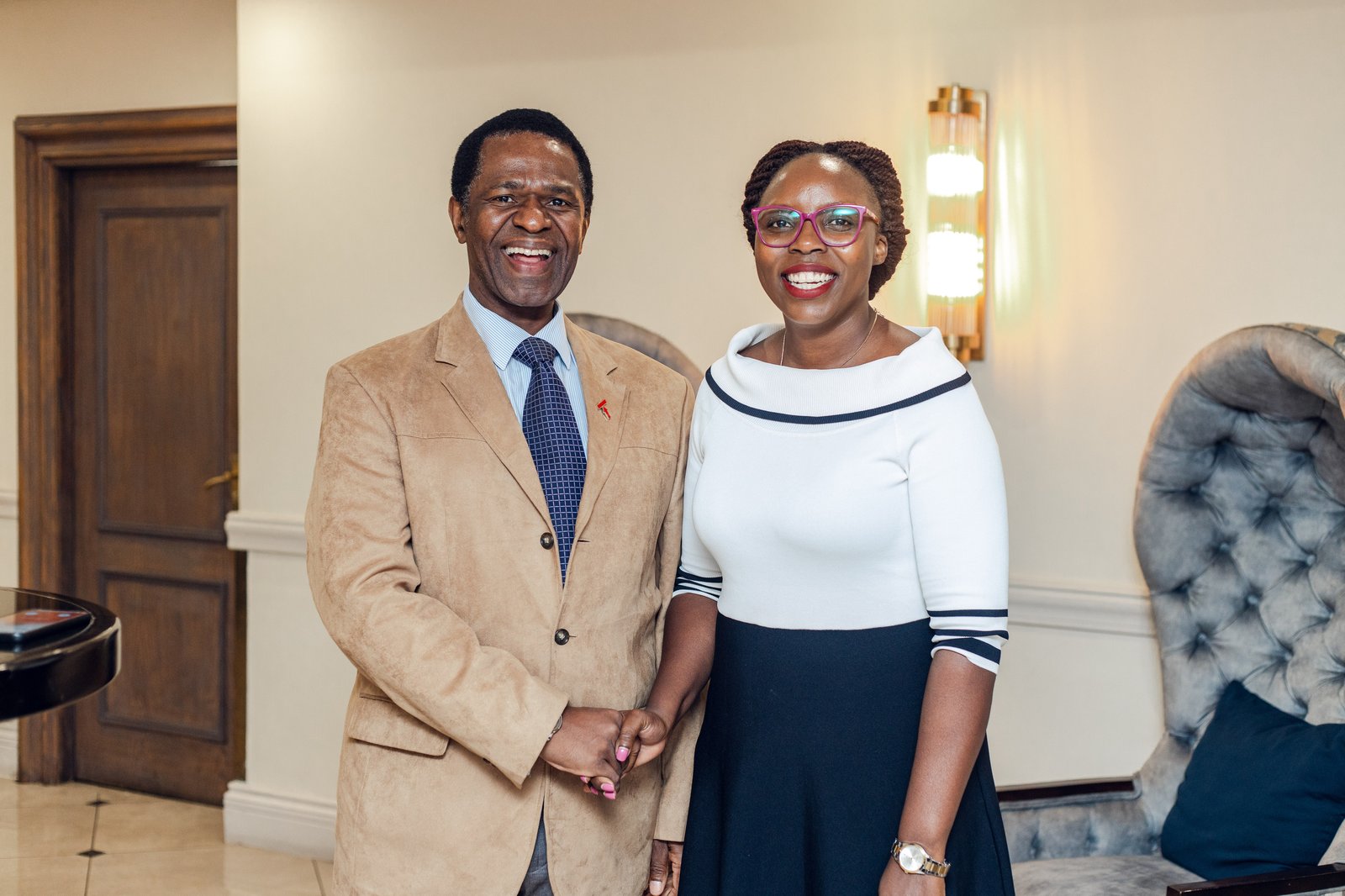
PATH’s Global MNCH and Immunization Advocacy Lead Esther Nasikye and South Africa National Assembly Hon. Dhlomo. Photo: PATH/Bright Mokome.
A unified strategy for Africa
With just five years remaining to achieve the 2030 SDGs, Africa faces a critical action window. During the regional convening, hosted by PATH’s Center for Advocacy and Policy, as co-chairs of the Advocacy and Accountability Working Group under the Every Woman Every Newborn Everywhere (EWENE) initiative, participants developed a regional MNCH advocacy strategy, anchored by five priority areas:
- Increased investment to match the ambition—Bring domestic and external financing to the level of urgency needed to reach EWENE and child health targets.
- Elevation on political and public agendas—Keep MNCH at the forefront of policy and public discourse through increased and sustained high-level political will.
- Strengthened accountability—Hold stakeholders accountable for implementing MNCH-related commitments nationally and regionally.
- Improved data translation to better inform action—Raise issue salience to influence decisions that impact MNCH outcomes.
- Enhanced coordination and partnerships—Strengthen collaboration among stakeholders to advance a unified agenda.
This shift from fragmented approaches to integrated, lifecycle-based programming supports women and children—not just to survive, but to thrive.
“This strategy is grounded in the urgent need to mobilize political will and financing across levels. Our vision is clear: by 2030, we want strong government leadership driving ambitious and well-funded maternal and child health agendas,” said Nasikye.
A task force was elected to coordinate implementation and strengthen connections with global platforms, including the EWENE Advocacy and Accountability Working Groups, the Child Survival Action Initiative, and broader health initiatives.
“Our vision is clear: by 2030, we want strong government leadership driving ambitious and well-funded maternal and child health agendas.”— Esther Nasikye, PATH’s Global MNCH and Immunization Advocacy Lead
Race to the finish line
Over the past 15 years, PATH has worked to improve women’s and children’s health by strengthening policy frameworks, advocating for increased domestic investment, and building leadership capacity to support advocacy from local to global levels. This convening served as a critical reminder for sustained investment. It intensified the push for better MNCH outcomes across Africa to achieve the ambitious 2030 SDGs. With the MNCH advocacy action strategy nearing completion, partners and actors must work together to elevate health outcomes for mothers and children in Africa.
